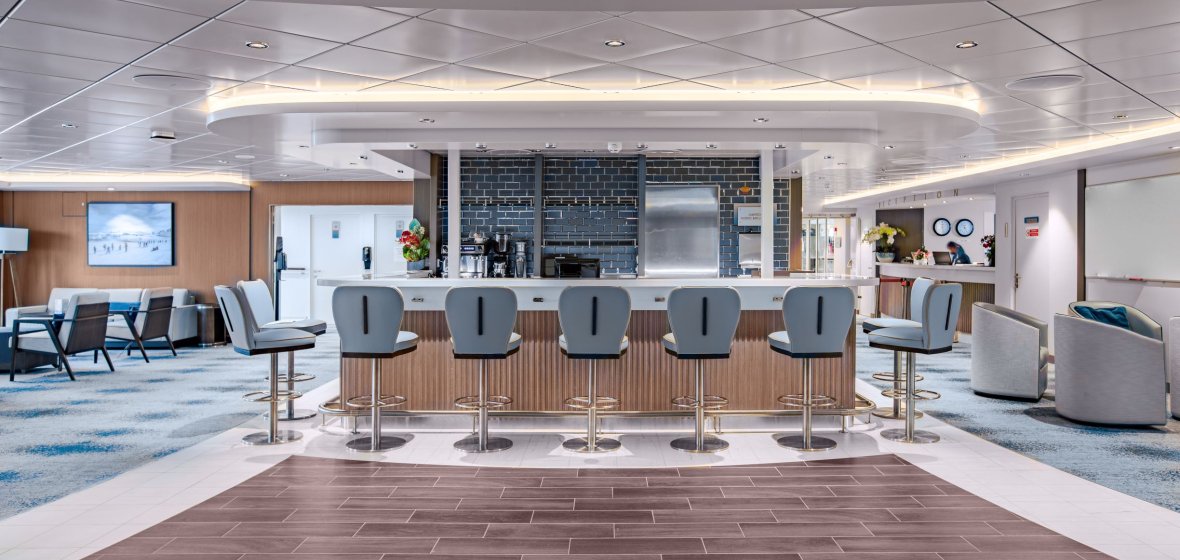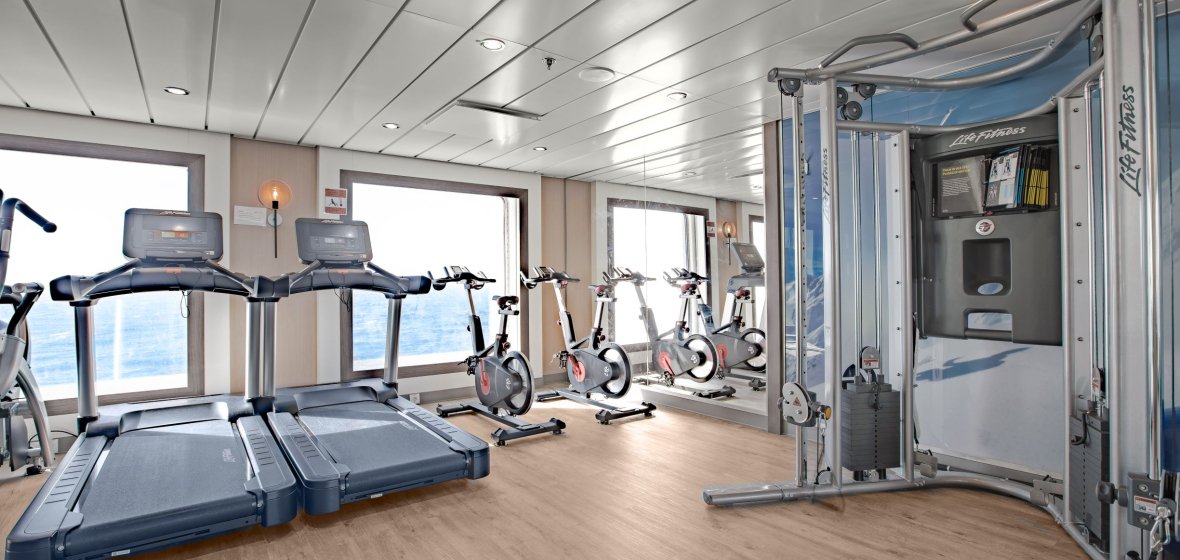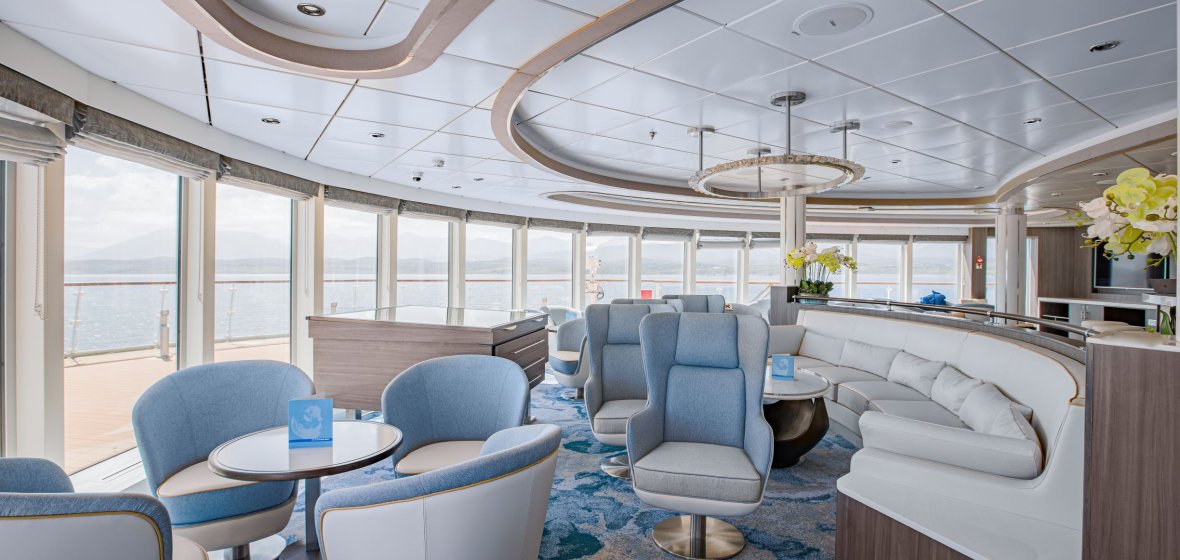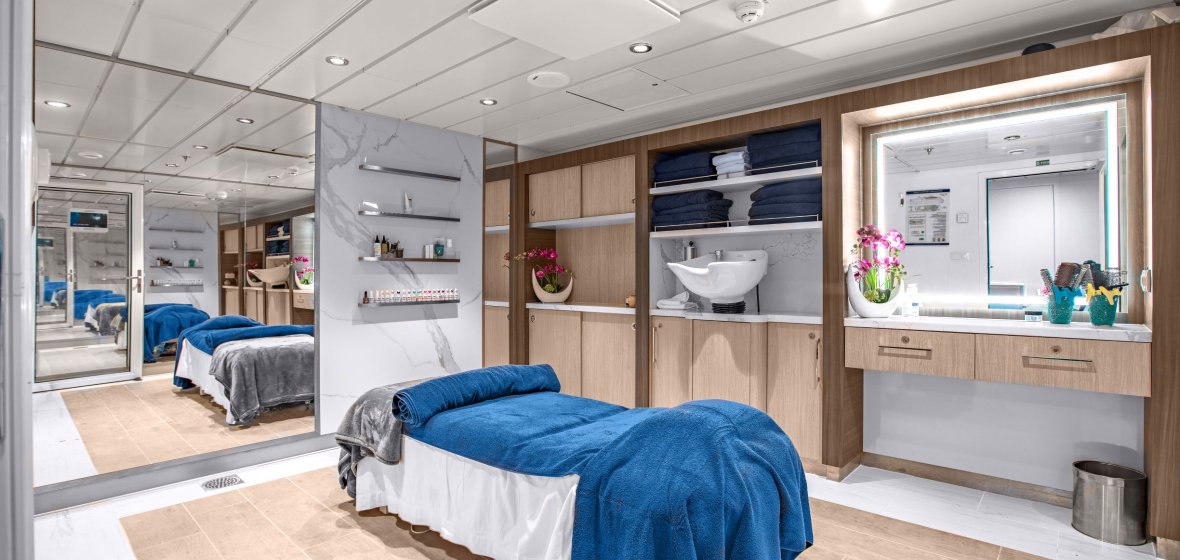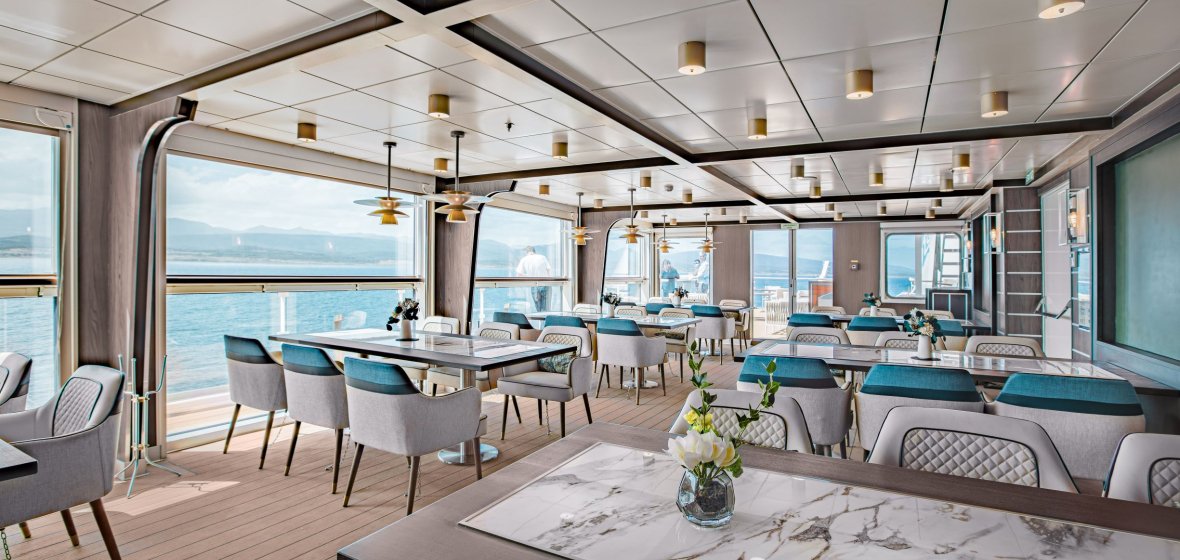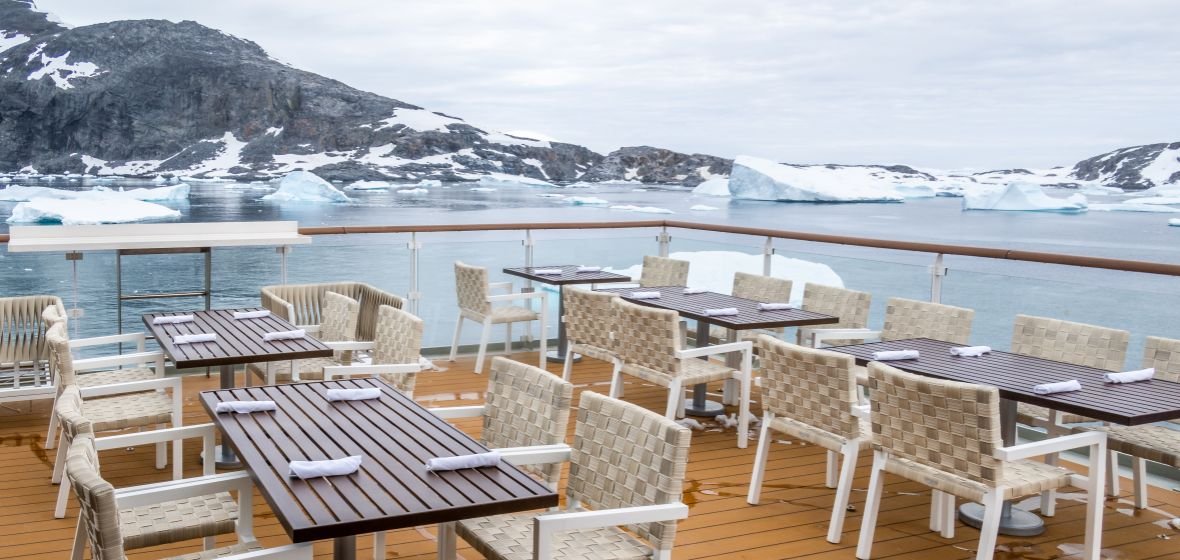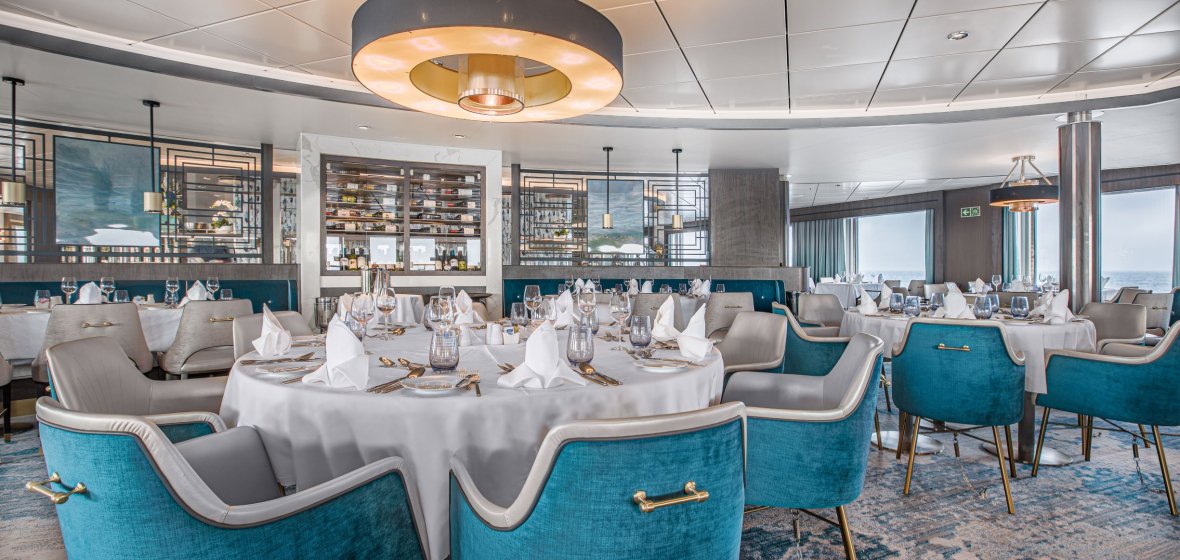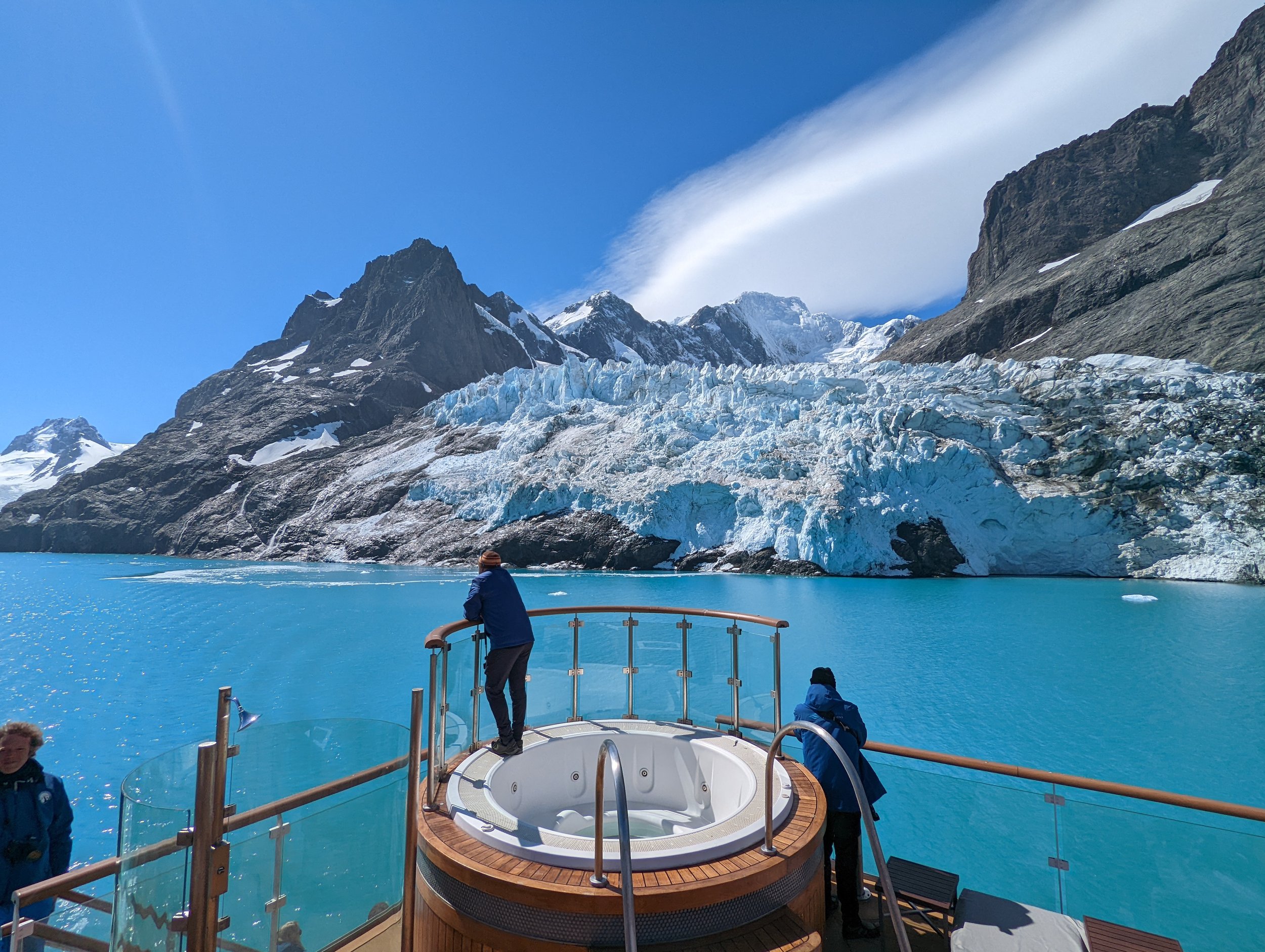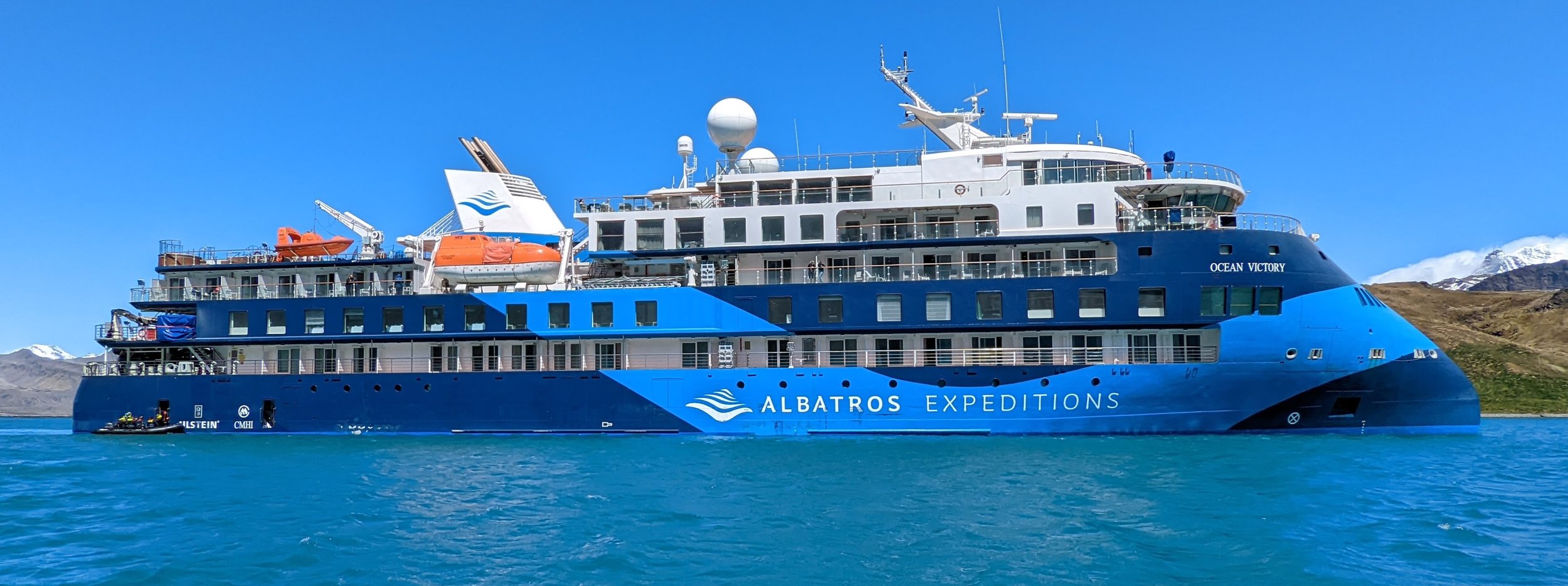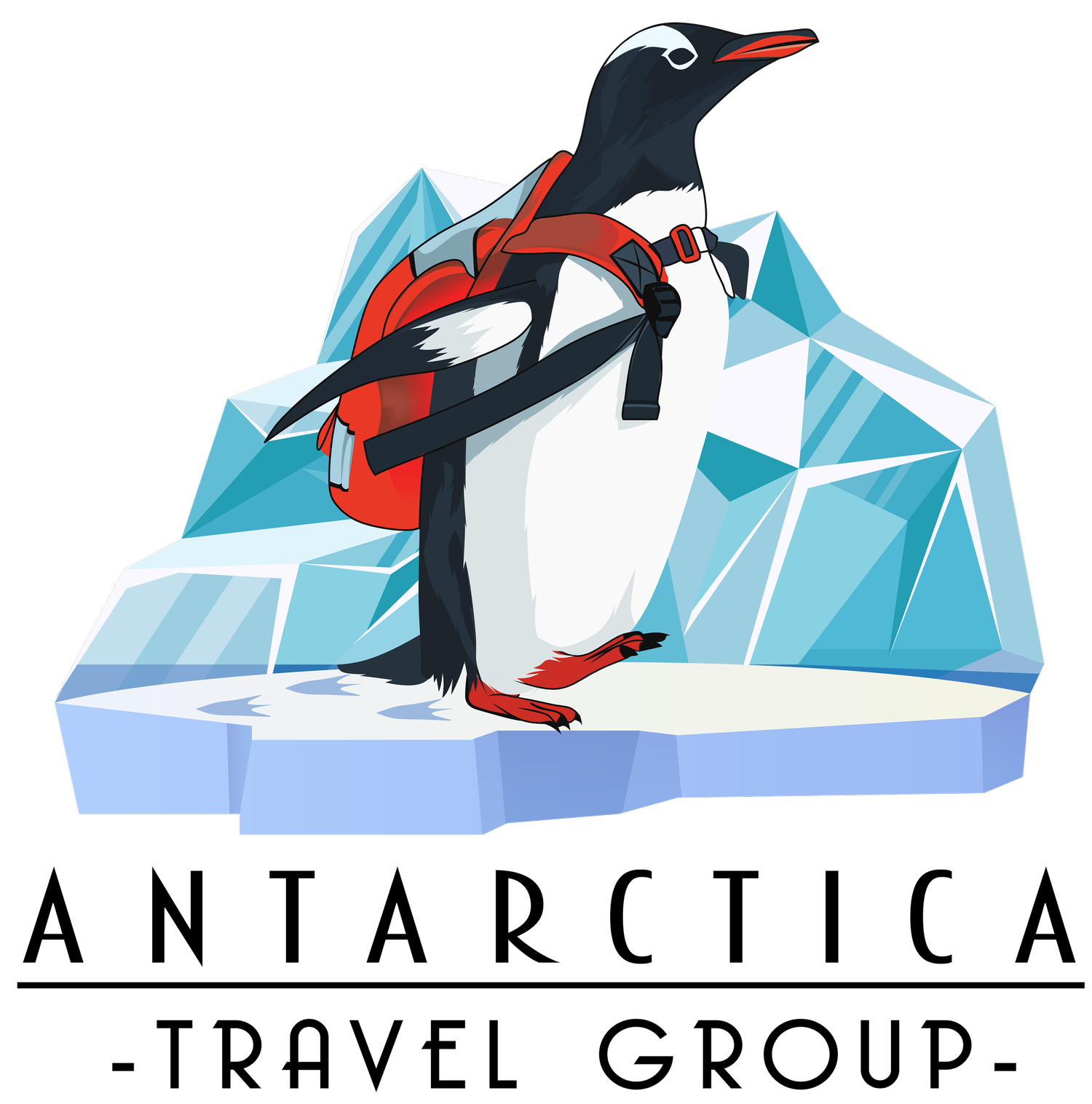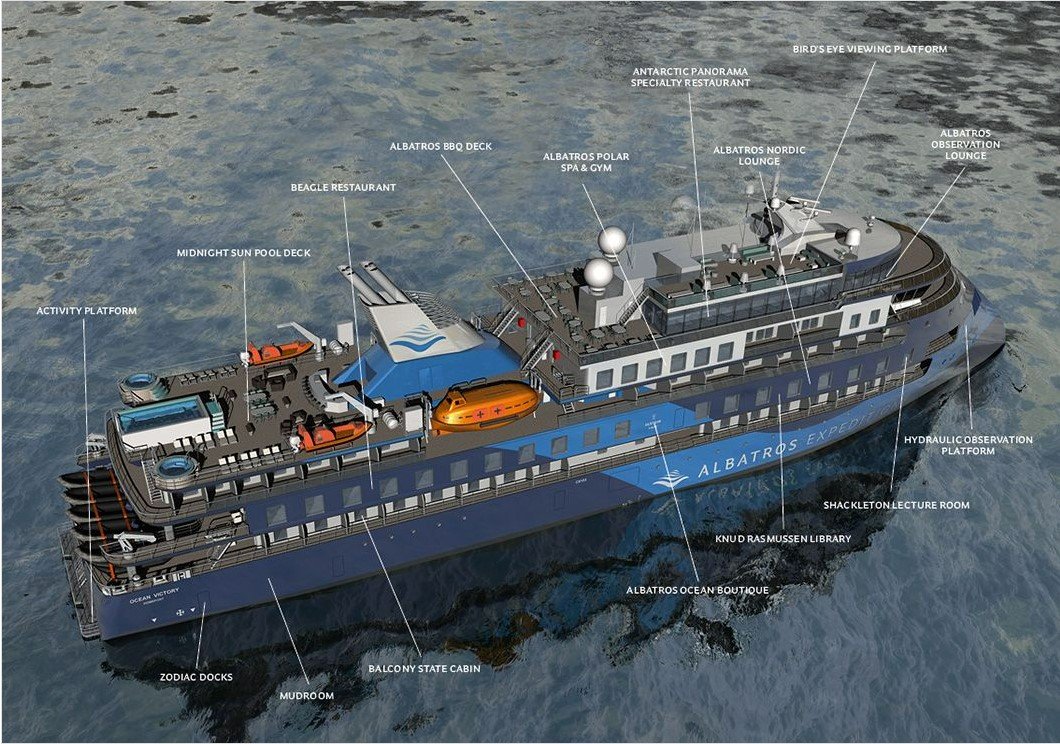
Antarctica, South Georgia and Falklands
19 Day Antarctica including South Georgia and the Falkland Islands
Departs: Nov 1st, 2024
Returns: Nov 19th, 2024
Duration: 19 Days / 18 Nights
Itinerary: Antarctica, South Georgia, and Falklands
Departing/Returning: Ushuaia Argentina
Ship name: Ocean Victory
Passengers: 176 *
Dates and Details.
Trip Description.
This Epic 19-day trip will explore the very best of the Southen Ocean. You’ll explore parts of Antarctica and the Wedell Sea not often visited by the Classic Antarctica trips due to their remoteness. These trips are rich in history, as they follow the footsteps of Shackleton and his men. You’ll enjoy the sounds of 500,000 King penguins in South Georgia and observe wildlife species only found in the Falkland Islands. Your trip will consist of shore landings, zodiac cruising, hikes, and presentations from for expedition team.
-
DAY 1 - ARRIVAL AND EMBARKATION IN USHUAIA
Arrive in Ushuaia, Argentina - the world’s southernmost city. Explore this vibrant Patagonian city, or stretch your legs in the surrounding forests. Alternatively, consider a day trip off the beaten path into the raw nature of Tierra del Fuego. The island of Tierra del Fuego is a hiker's paradise with rugged snow-capped mountains, glaciers, flower-filled meadows and rich boggy wetlands. In the afternoon, we board our vessel, waiting to welcome us in port.
After our mandatory safety drill, our expedition begins as we navigate through the calm waters of the famous Beagle Channel (named for Charles Darwin's ship). This steep-sided strait divides southern Tierra del Fuego between Chile and Argentina, and has been the jumping-off point for thousands of expeditions into the unknown. Watch out for whales and dolphins as we sail off the edge of the map into the tempestuous Drake Passage.
NB. Trips that depart in November or December will often have the same itinerary and spend the same amount of days at each location, but the route will be inverted - following this plan: Ushuaia, Falkland Islands, South Georgia and Antarctic peninsula.
DAY 2-3 - AT SEA - CROSSING THE DRAKE PASSAGE SOUTHBOUND
Sailing onward, we cross the famed Drake Passage - the body of water separating Patagonia and the Antarctic Peninsula. The Drake Passage is known for rollicking conditions and strong westerly winds, nicknamed the Furious Fifties. While this passage may be challenging, you can rest comfortably aboard our expedition vessels, which are purpose-built with stabilizers, powerful engines and manned by a highly-qualified crew. The most spirited sailors consider Drake Passage a lifetime achievement - and you will complete the crossing twice!
Our days in the Drake Passage will be put to good use preparing for our arrival in Antarctica - your Expedition Leader will brief you comprehensively on how to stay safe and minimise your impact on this precious wilderness, as well as briefing you thoroughly on our plans for our time spent exploring, including hints and tips for wildlife watching. Our dedicated Expedition Team will assist you to biosecure your clothing and equipment (a vital process to protect Antarctica's delicate ecology), as well as sharing tailored lectures on Antarctic exploration history, wildlife, geology, glaciology and more!
We will cross into the Antarctic Convergence on the third day of our voyage - watch the mercury plummet as we sail southwards into Antarctic waters, an abrupt cooling that marks the intersection of Antarctic waters with the warmer waters of the Atlantic and Pacific Oceans. As the sea cools, wildlife multiplies; these are some of the most biologically productive water on Earth, so expect to see petrels, albatrosses and potentially penguins, seals and whales in abundance. Weather permitting, we may be able to make landfall in the South Shetland Islands (a small but spectacular archipelago to the north of the Antarctic Peninsula) on the afternoon of our second day in the Drake Passage, marking the start of our exploration on the Last Continent.
DAY 4-7 - SOUTH SHETLAND ISLANDS, ANTARCTIC PENINSULA, ANTARCTIC SOUND
Over the next days, we will enjoy a safe and exciting Antarctic experience explorers of yesteryear could only dream of.
Our Antarctic adventure begins in the South Shetland Islands, a chain of rugged rocks marking the northernmost point of Antarctica. It is also one of the richest in terms of wildlife, with large Gentoo and Chinstrap Penguin colonies, and an abundance of large seabirds such as predatory Giant Petrels. Landing sites which may be visited in the South Shetland Islands include the black steaming sands and rusting ruins of Deception Island (an active volcanic crater), the bustling penguin colonies of Aitcho and Half Moon Islands, or the old sealers' anchorage of Yankee Harbour.
The following days will be spent exploring further south on the Antarctic Peninsula in the Gerlache Strait region. This region is typically icy, so our exact route will be subject to careful planning by the Expedition Leader and Captain, and explained to our guests through regular evening briefings. However we will aim to visit a range of sites which showcase the best of this staggeringly beautiful region.
Consisting of the 'spine' of the Antarctic Peninsula and a large number of glaciated and mountainous islands, the Gerlache Strait is what comes to mind when most people think of Antarctica. Marvel at the massive icebergs and vast glaciers on a Zodiac cruise in Paradise Bay. Be moved by penguins tenderly caring for their precious eggs, and fiercely defending their nests on Cuverville Island. Watch cataracts of ice tumble into clear blue ocean on a hike over the active glaciers of Neko Harbour. Experience the Antarctica of old at historic huts such as Damoy Point, lovingly restored and open to all. Feel the spray of water from the blow of a humpback whale on a Zodiac safari in Wilhelmina Bay. Wonder at awe-inspiring scenery on a ship cruise through the Lemaire Channel. Wherever we go on the Antarctic Peninsula, endemic wildlife, tantalising history and breathtaking natural beauty abound.
As the vessel heads to the tip of the Antarctic Peninsula to head for South Georgia, we may be lucky enough to visit Elephant Island, the mythically grim island where Shackleton's men sheltered for several months while the Boss sought rescue - one of the greatest stories of human survival and endurance ever told.
On Antarctica, all human activity is subject to the whims of Mother Nature. While we will make every possible effort to maximise opportunities for exploration off the vessel, the safety of our guests and crew is our top priority. We therefore ask all our guests to join the expedition spirit and be flexible - harsh weather offers the opportunity to expand your knowledge of Antarctica with lectures from our expert Expedition Team, or to enjoy the superlative comfort of our vessels, be it wine-tasting, relaxing in the hot tubs, or recharging with a relaxing massage in our Polar Spa.
DAY 8-9 - SCOTIA SEA - EN ROUTE TO SOUTH GEORGIA
From Antarctica, we set out again into the mighty Drake Passage, this time following the furious seas towards South Georgia, mirroring the route of Sir Ernest Shackleton onboard the James Caird. His voyage took an agonizing seventeen days in the tiny wooden lifeboat - still considered one of the greatest ever feats of navigation and seamanship. Your crossing will benefit from our vessels' powerful engines, and the stability provided by the specially-designed X-Bow, making the journey in just two days!
In order to protect the extremely delicate and rich ecosystem of South Georgia, our dedicated Expedition Team will again assist you to biosecure your clothing and equipment, while continuing with their in-depth lecture program, now focussing on the fascinating history, biology and wildlife of South Georgia. Be sure to wrap up warm and join your Expedition Team out on deck - this section of the Scotia Sea (of which the Drake Passage constitutes the western portion) is one of the most biologically productive on Earth, and is a haven for vast quantities of wildlife - from whales and albatross to penguins and seals. Watch the waves carefully - in this region, sub-Antarctic species (such as fur seal) mingle with true polar species (such as Adelie Penguins), creating a fascinating ecological mix.
DAY 10-13 - SOUTH GEORGIA
A strip of jagged mountains pierce the brooding clouds of the Southern Ocean. Icebound peaks loom over storm-washed beaches, while glaciers peek from the head of deep fjords. First believed to have been landed on by legendary explorer Captain James Cook, even to modern explorers, South Georgia presents a forbidding aura. But peer closer, and you will see greenery among the ice; movement on the beaches; wings in the skies above.
While it seems hard to believe today, South Georgia was once one of the most degraded environments on Earth. Hearing of the rich pickings, sealers flocked to the island after Cook, slaughtering wantonly. Once the seals had been almost exterminated, visiting ships sought larger prey, and South Georgia became the world's largest whaling destination, with several settlements built to carry out this industrialised slaughter. Whalers from Norway introduced reindeer as game, which soon destroyed the islands native vegetation, while brown rats (accidentally introduced by Europeans and their boats) feasted upon seabirds and their eggs - a horror against which these naive birds had no defence.
Thankfully, extensive conservation (including a painstaking eradication of reindeer and rats) has restored this magnificent island to its former glory - and glory it truly is. Beaches throng with hundreds of thousands of King Penguins, arguably some of Earth's most elegant animals. They must vie for space with the abundant Antarctic fur seals, all desperately defending territories and competing furiously for mates - and they themselves must avoid the southern elephant seals, Earth's largest seals (weighing up to a staggering four tonnes). Tiny South Georgia Pippits and Pintail Ducks (once almost extinct) are now abundant, and petrels, albatross and shags nest on the steep hillsides and wheel in the air above. In the sea, leopard seals stalk for their next penguin meal, fur seal pups play in the shallows, and offshore, a huge variety of whale species gorge on krill. Nowhere else on Earth can boast such a diversity of wildlife, or in such quantities; South Georgia truly has to be experienced to be believed.
As in Antarctica, our exact itinerary will be dictated by weather and sea conditions, but especially by the wind and swell - nevertheless, our experienced Expedition Team and Captain will work their hardest to maximise opportunities to explore. Options include visiting the vast penguin colonies of Salisbury Plain and St Andrew's Bay, seeing the former whaling stations of Lieth and Stromness, drinking in the scenery and seal colonies of Gold Harbour, or exploring this island's fascinating exploration heritage at Grytviken (where Sir Ernest Shackleton is buried). South Georgia is one of those locations which grabs hold of the senses and never lets go; even long after departure, the jewel of the South Atlantic will captivate visitors for years to come.
DAY 14-15 - AT SEA, EN ROUTE TO THE FALKLAND ISLANDS
Leaving the icy peaks of South Georgia behind, we continue onwards towards the Falkland Islands (Malvinas). While South Georgia and the Falklands are separate British Overseas Territories, the two are intimately linked - South Georgia was administered from the Falklands for most of its history, and continues to be supported logistically entirely by the Falklands. Unlike South Georgia (which only hosts visiting government officials and scientists), the Falklands has its own unique system of government, society and culture.
While the indigenous Yaghan people of Tierra del Fuego may have visited the islands, the Falkland Islands (Malvinas) had no indigenous population when Europeans arrived in the early 16th Century. The islands' sovereignty has been contested ever since, with historical Spanish, French, British and Argentine claims; the islands were established politically as a British colony in 1840. Tensions resulted in a conflict over the islands between Britain and Argentina in 1982. The conflict left a lasting impact on the islands - while it spurred much-needed development assistance from the United Kingdom, the conflict also left much of the islands heavily mined. Since the conflict however, the islands have flourished, selling lucrative fishing rights to their rich waters. The de-mining operation was completed in 2020, celebrated by a football match on the last patch of de-mined ground between the islands' Governer and the Zimbabwean de-mining team who have made the Falklands their home.
The waters between South Georgia and the Falklands are some of the richest in the world, with huge whale, seal and penguin populations feeding where cold Antarctic waters meet the warmer waters of the South Atlantic, so keep binoculars at the ready as we sail across the Antarctic convergence (especially around Shag Rocks). Otherwise, join your Expedition Team lecturers to hear about these islands' fascinating history, biology and unique 'Kelper' (as the locals call themselves) culture.
Read less
DAY 16-17
STANLEY AND THE FALKLAND ISLANDS
During the morning we approach the Falkland Islands and our vessel will cast anchor in the sheltered natural harbor of Port Stanley in the early afternoon. Utilizing our Zodiacs, we will land in the centre of this small city. Stanley is the only settlement on the islands of any size, with a population of around two thousand people. Behind the colourful buildings in neat rows, look closer and you will notice a very distinctly British feel to Stanley - Victorian houses which could be on any swanky London terrace line the harbourfront; red telephone and post boxes stand by the jetty; whitewashed pubs serve fish and chips alongside foaming pints of ale. The Falkland Islanders are proud of their unique homeland and capital, and Stanley is a great place to explore and soak up the local vibe. Highlights in the city include Christchurch Cathedral, the southernmost Anglican cathedral on Earth, as well as excellent shops selling local products (watch out for high quality woollen good in particular!), cafes and pubs offering a warm welcome, and several excellent museums; visitors are spoiled for choice! A short drive or a pleasant walk from the city are several stunning beaches; formerly heavily mined, these are now open, and locals and foreigners alike often visit to see the abundant penguins and spectacular gold-white sands.
On our second day in the Falklands we will venture to some of the outer islands - 'Camp', as the locals call the area outside Stanley. The outer islands of the Falklands are much wilder and more remote than the mainland, and host the majority of the islands' wildlife. Islands such as West Point, Carcass and Saunders are well known for their spectacular wildlife. Southern Rockhopper Penguins, Black-Browed Albatross and King Cormorants commonly nest together in vast cliffside colonies; penguins nurture their eggs and chicks in clefts between large cylindrical nests where cormorants and albatross nest. Be sure to look out above to see the bast albatross coming in to land (often less than gracefully). The islands are home to a vast number of other bird species such as the endearingly cheeky Striated Caracara (watch all unattended possessions!), and in the water a number of species new to us such as commerson's dolphins and South American sealions can be seen playing.
DAY 18 - AT SEA TOWARD SOUTH AMERICA
We are now into the last leg of this adventurous voyage, heading back towards Ushuaia, Argentina.
During our time at sea, a variety of activities will be arranged on board to provide our guests with the chance to reflect on their voyage. Relax with an expertly crafted cocktail in the Nordic Bar in the company of new friends, soak up the knowledge and passion of our Expedition Team during lectures in the Shackleton Lounge, or simply enjoy the flight of the albatross which accompany us westward.
During your last evening onboard, join the Captain and Senior Officers for the Farewell Cocktail Party, followed by a presentation of photos and video by our onboard photographer - the ideal opportunity to re-live your Antarctic adventure. Skål!
DAY 19 - DISEMBARKATION IN USHUAIA
On the morning of the final day of our voyage, we will arrive back at the pier of Ushuaia, Argentina. Trees, grass and a busy city may seem strange to you after the white wilderness of Antarctica! After a hearty breakfast, it is time to bid a fond farewell to the Crew and Albatros Expedition Team, and descend the gangway back to dry land with memories of the voyage of a lifetime.
-
Shore excursions:
Landings are a great opportunity to stretch your legs and set foot ashore to visit the dense penguin colonies, vast snowfields, and dramatic landscapes of the last continent. Our experienced Expedition and Deck Teams will assist guests to board and disembark the Zodiacs, the only means by which we can access these remote and rugged shores. Our friendly team will always be on shore to help you spot and identify the different species of penguins and other wildlife, guide hikes and other excursions, interpret what you are seeing, as well as keep our guests safe on shore from any potential hazards. Different landing sites exhibit a variety of exploration opportunities - these could include penguin or other wildlife colonies, historical sites, active research stations, or simply locations of exceptional natural beauty. Our knowledgeable Expedition Leader will always try to ensure landing sites are selected with variety of experiences in mind to exhibit the best of the region.
Zodiac cruises:
Some sites do not offer landing opportunities, but are locations where exploring on the water offers the best opportunities for sightseeing and photography. These Zodiac cruise sites are often known for their collection of larger icebergs, wildlife densities and even historical landmarks such as shipwrecks, where our fleet of Zodiacs offer the best vantage point. Zodiac cruises are great for observing icebergs, glaciers, whales and other marine wildlife. Your skilled driver will navigate around the area looking for wildlife and beautiful land- and seascapes. By the end of the voyage, Zodiac cruises tend to become a firm favourite among our guests because of the vast diversity of scenery and marine life it is possible to experience.
Ship Cruises:
In the event we encounter bad weather or are in a particularly spectacular location, often our purpose-built expedition vessels are the best viewing platform. The Captain and Expedition Leader will search for locations best accessed with the vessel, seeking out the best wildlife and scenery. We encourage everyone to bundle up and either head onto the outer decks with the Expedition Team or relax in superlative comfort in our specially-designed lounges to experience the majesty of Antarctica and South Georgia from the best vantage point. The unique sloping X-Bow design of our vessels offers unimpeded views from almost all vantage points, as well as hydraulic viewing platforms on Deck 5 for intimate al fresco viewing close to the water. During ship cruises, our Expedition Team specialists will be on hand to answer questions, point out widlife and other sights, and offer hints and tips on photography.
After crossing the Southern Ocean, your vessel will arrive in the Falklands Islands, South Georgia and eventually Antarctica. The goal for the days spent exploring in the Southern Ocean is to offer activities which will allow everyone to explore off the ship as much as possible (weather permitting). Weather dependent, we will try to offer two activities per day, usually either a landing or a Zodiac cruise.
Typically, there will be a morning activity after breakfast and an afternoon activity after lunch. We always try our hardest to meet this expectation, but because weather in the Southern Ocean can be extremely unpredictable, we ask everyone to be mindful of our remote location and thank everyone in advance for their flexibility. Activities we offer include landings, Zodiac cruises and ship cruises. Regulations in Antarctica and South Georgia limit the number of people ashore at any time, so we will usually aim to offer a Zodiac cruise while our first group of guests are ashore, and reverse this for the second group ashore to maximise exploration time. No matter the day’s planned activities, the onboard Expedition Team and Expedition Leader will work as hard as possible in conjunction with the Captain and Crew to maximise exploration opportunities.
A “typical” expedition day may look like this (subject to weather and sea conditions and sailing schedule):
06.45: Wake-up call
07.00-08.00: Breakfast
08.30-11.30: Morning activity - landing and/or Zodiac cruise
12.30-13.30: Lunch during vessel repositioning
14.30-17.30: Afternoon Activity - landing and/or Zodiac cruise
18.30-19.30: Evening Recap and Briefing with the Expedition Team
19.30: Dinner
21.00: Evening entertainment or presentations with the Expedition Team.
* All activities are subject to weather, scheduling and timing.
-
INCLUSIONS
19-day cruise with accommodation in a shared double stateroom featuring ensuite facilities
Embarkation shuttle transfer to the vessel from Ushuaia city centre
Shuttle transfer after disembarkation from the ship to Ushuaia city centre or airport
All Zodiac landings and excursions, as per itinerary, guided by our Expedition Team
Expedition parka
Rubber boots loan scheme
Briefings and lectures by our Expedition Leader and Team
English-speaking Expedition Team
Full board on the ship - breakfast, lunch, dinner and snacks
Complimentary house wine, beer and soda at dinner (selected labels and brands, served at our a-la-carte dinners)
Free tea and coffee available 24 hours
Taxes and landing fees
Special photo workshops
Welcome and Farewell Cocktail Parties
Digital visual journal link distributed after the voyage, including voyage log, gallery, species list and more!
EXCLUSIONS
Extra excursions and activities not mentioned in the itinerary
Single room supplement and stateroom upgrades
Meals not on board the ship
Beverages (other than coffee and tea)
Tips for the crew (we recommend USD 16 per person per day)
Personal expenses (e.g. Albatros Polar Spa services, Albatros Ocean Boutique purchases)
Anything not mentioned under 'Inclusions'
-
A deposit of 25% is required to hold your spot withing 14 days of being invoiced and final payment is due 90 days before departure. Payment can be made via bank transfer or debit and credit card. Cards accepted are Visa or Mastercard.
Highlights of this trip.
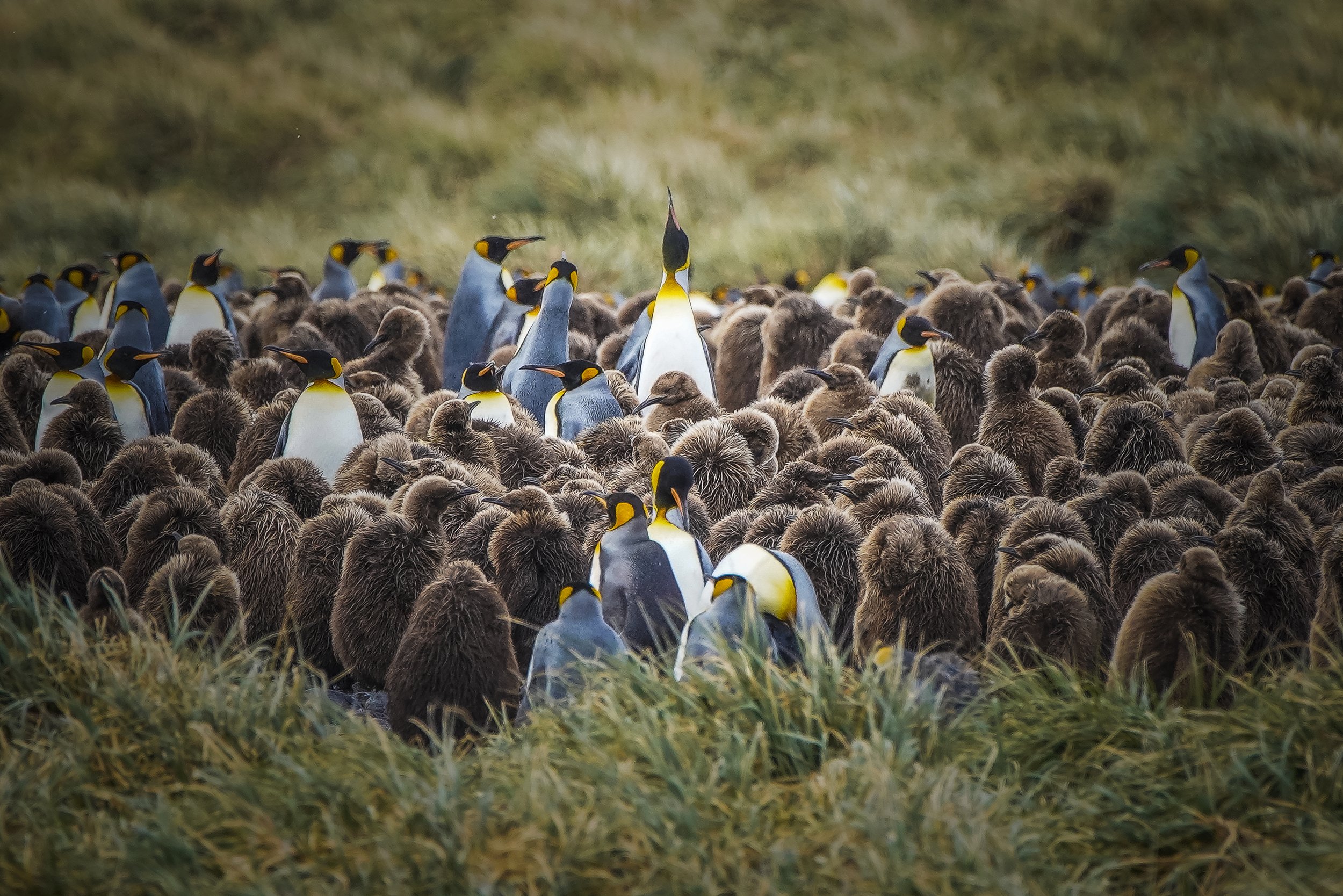
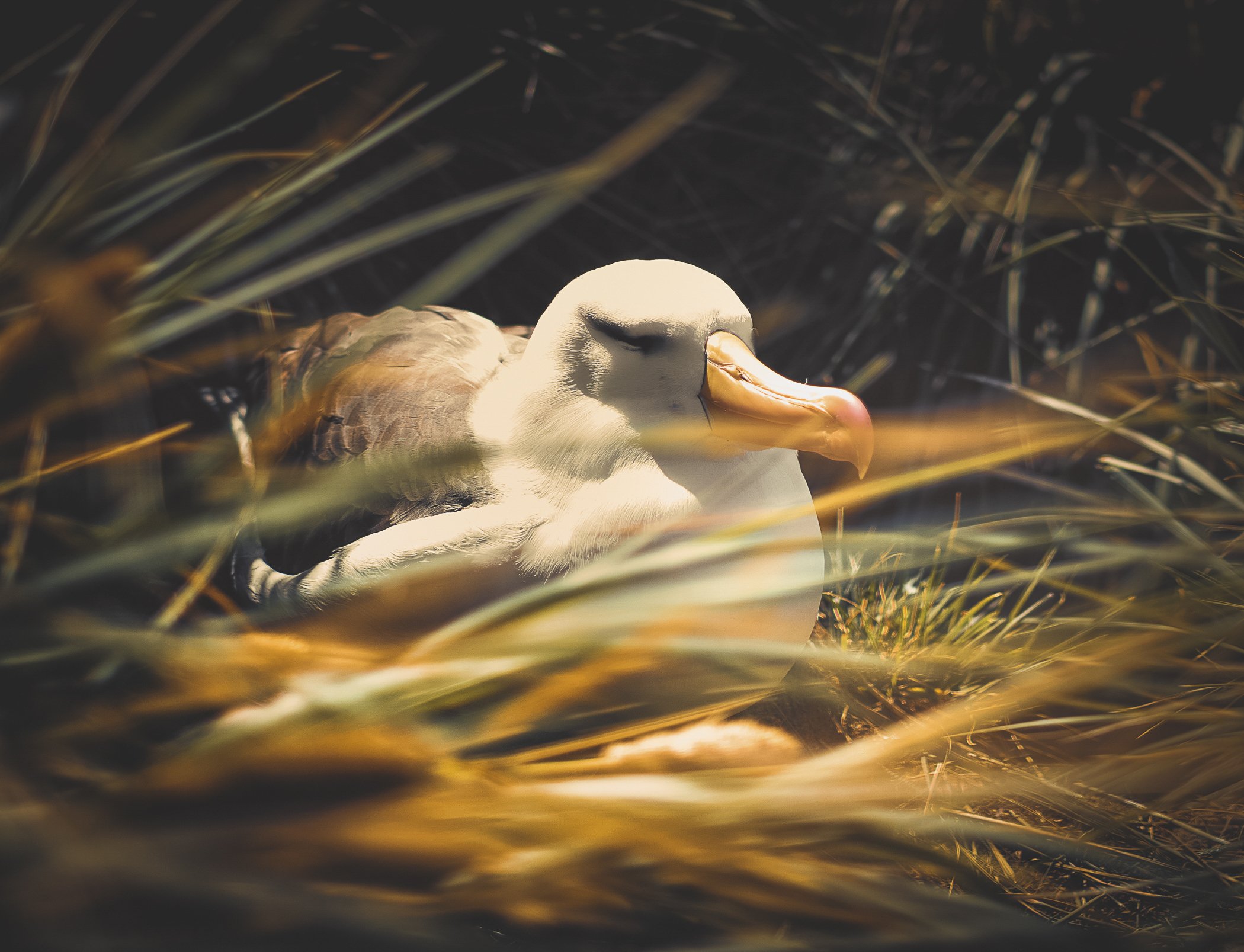

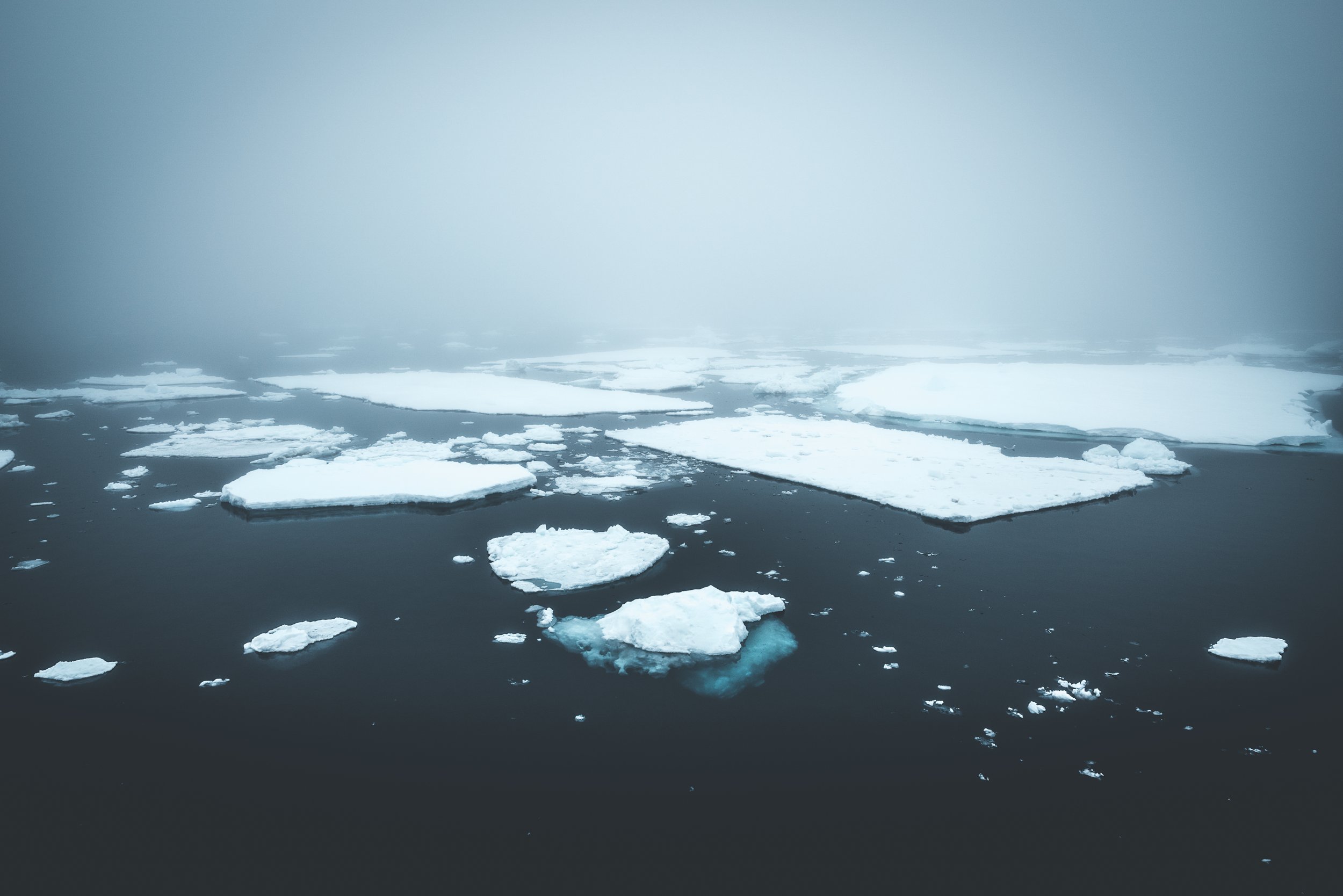



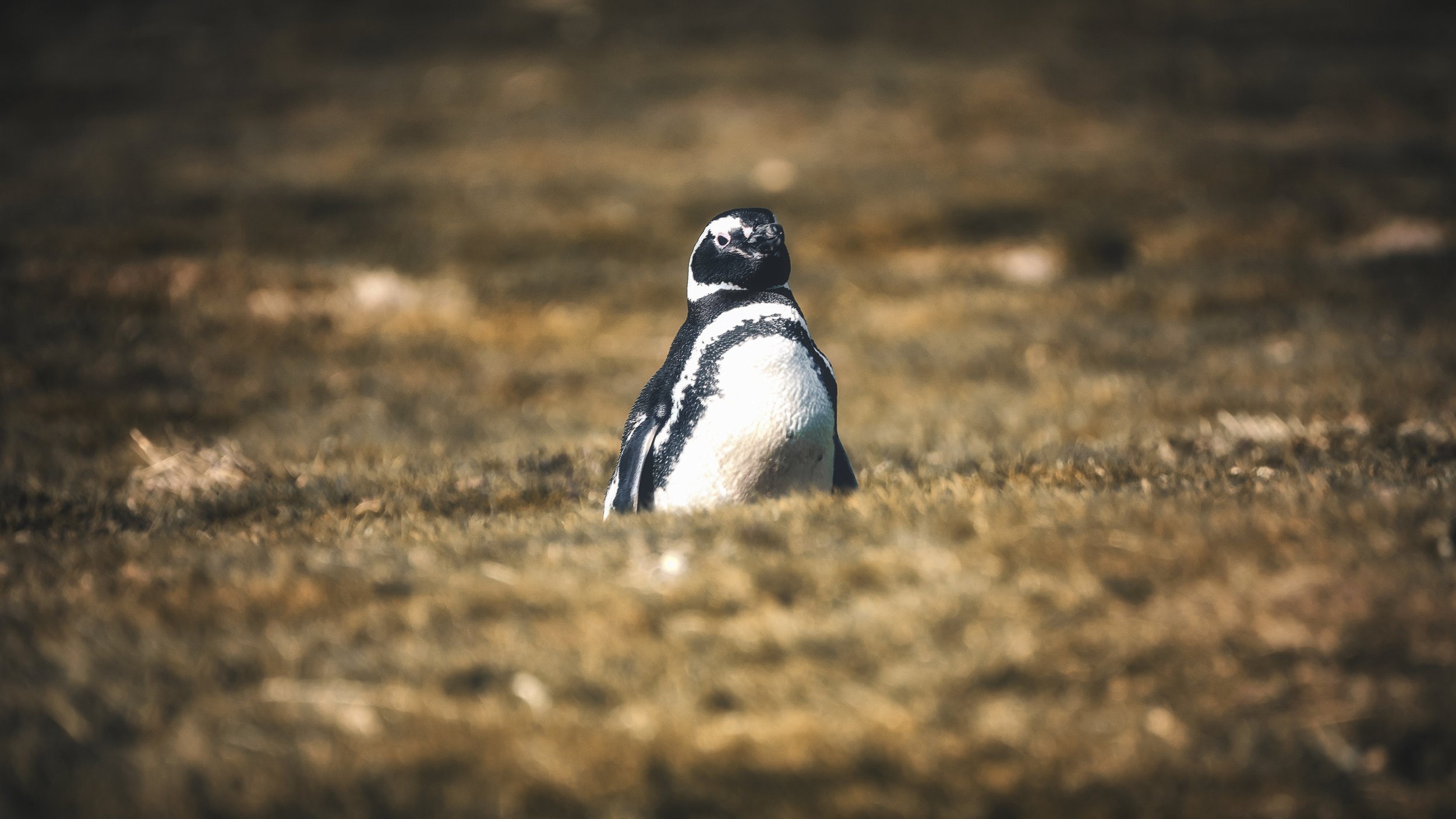



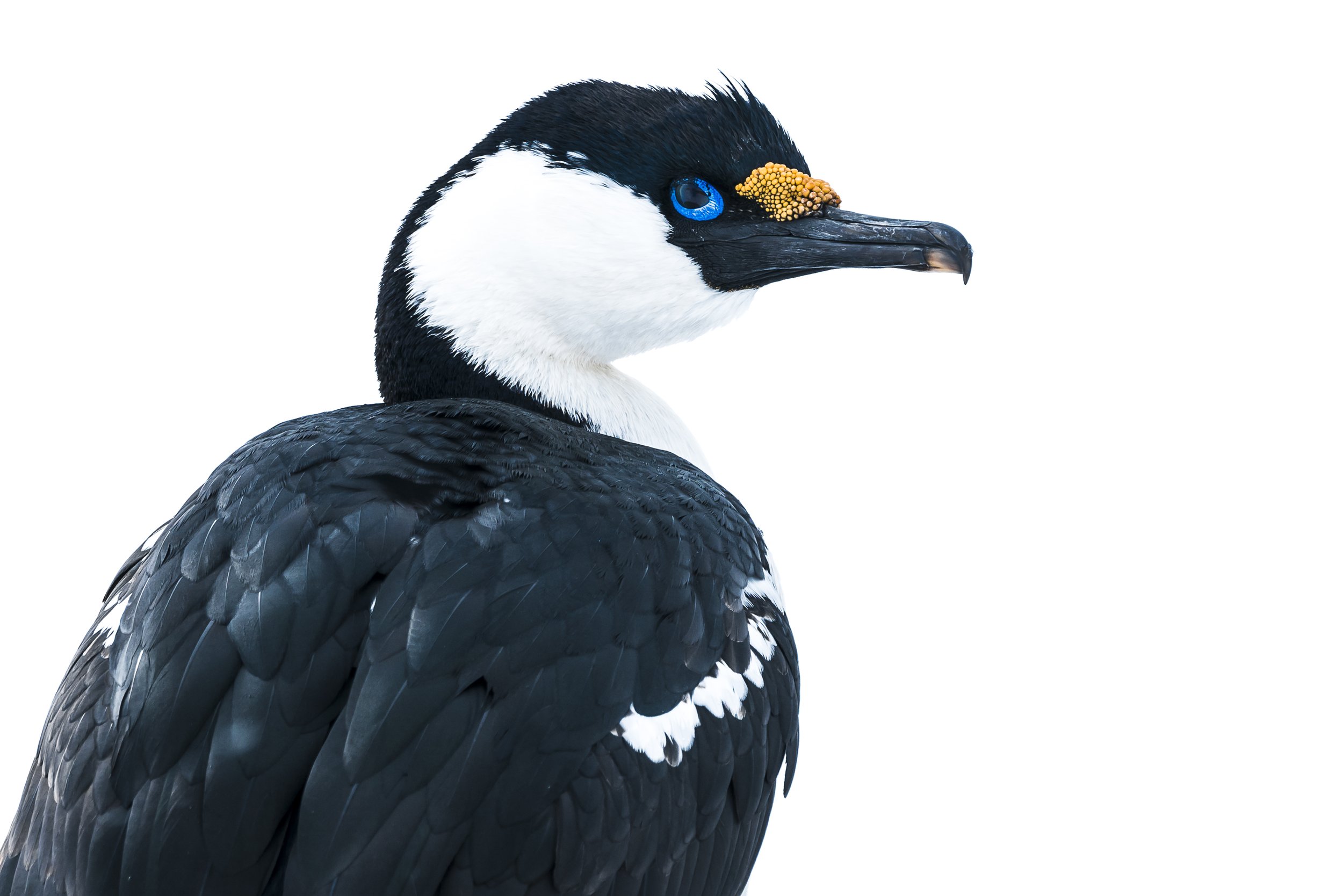


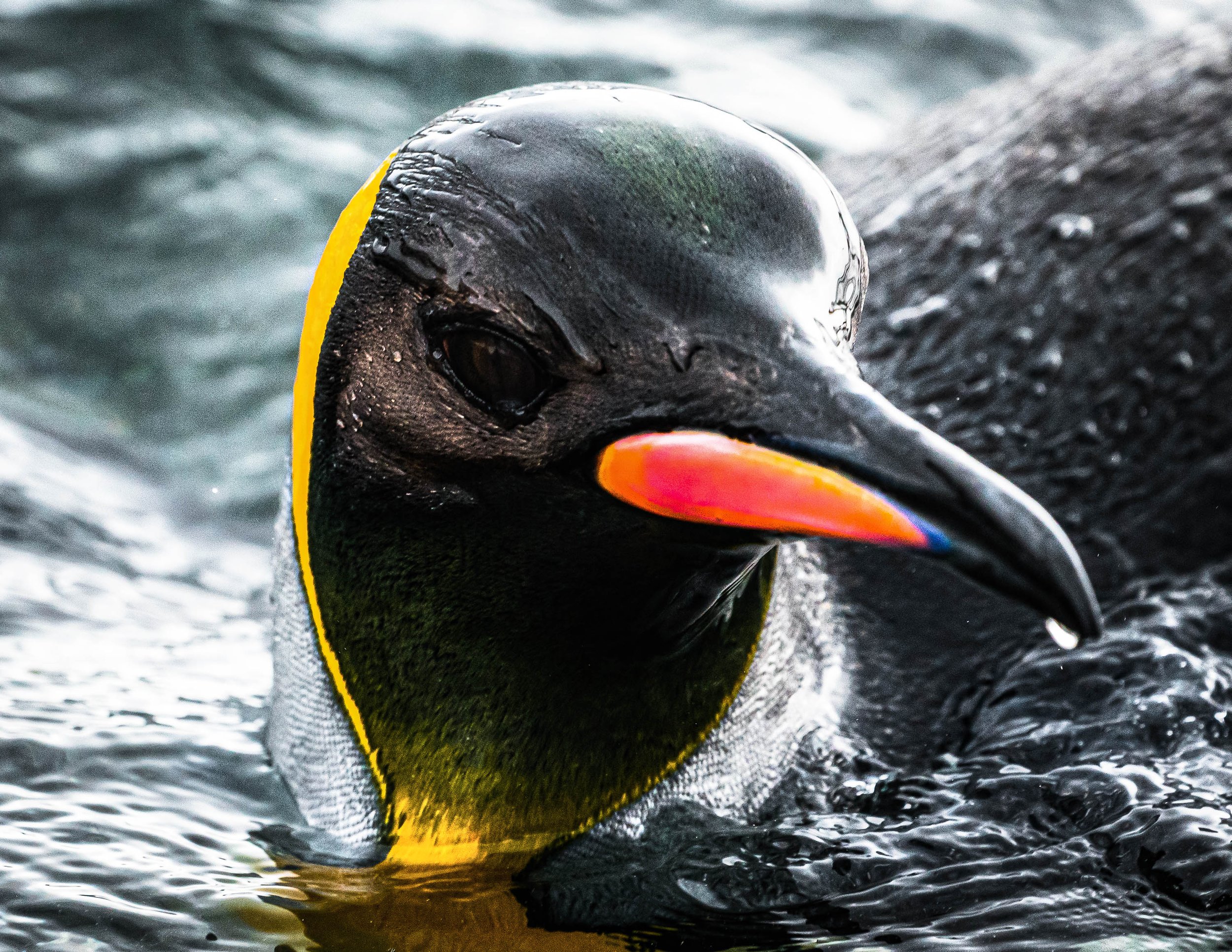

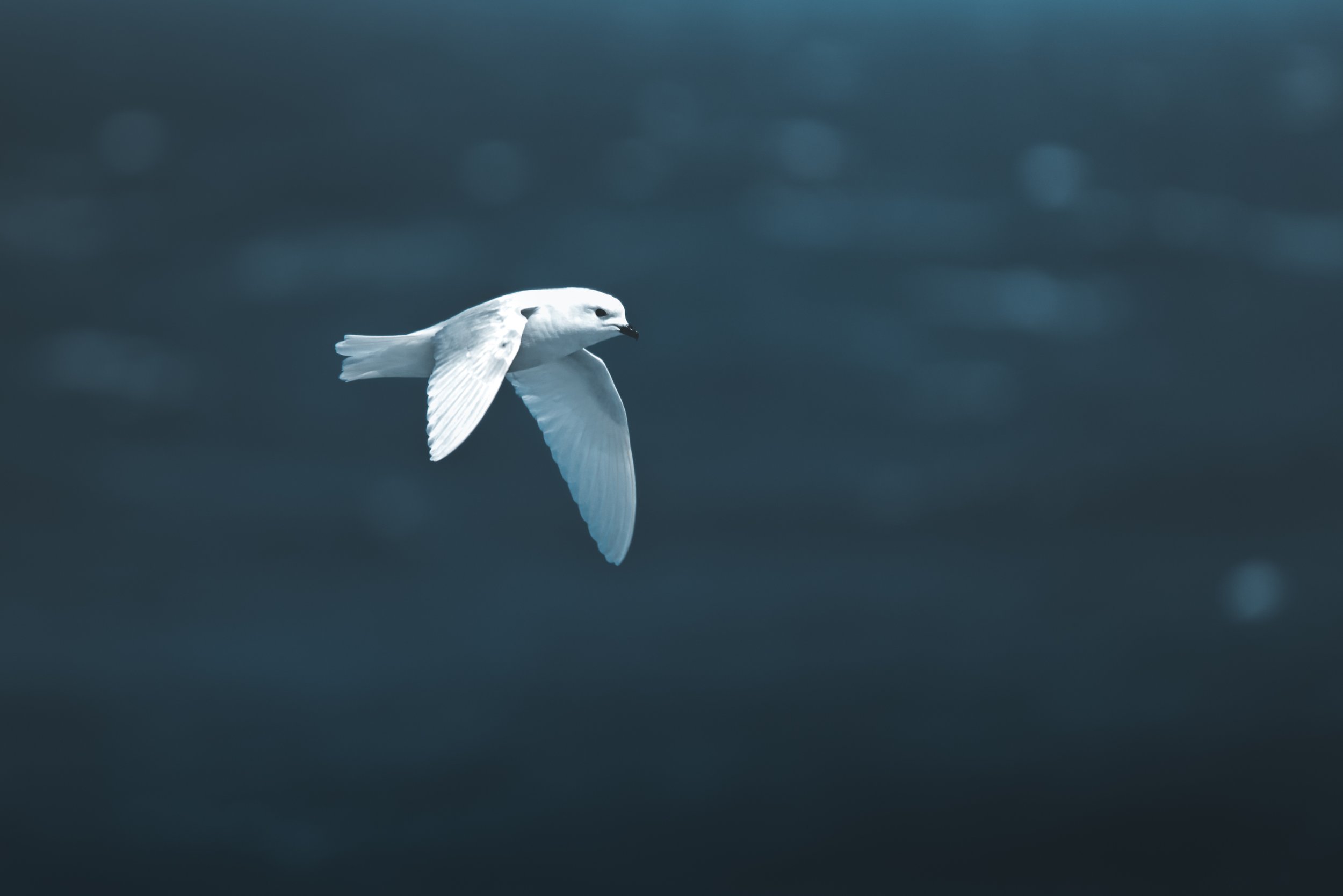
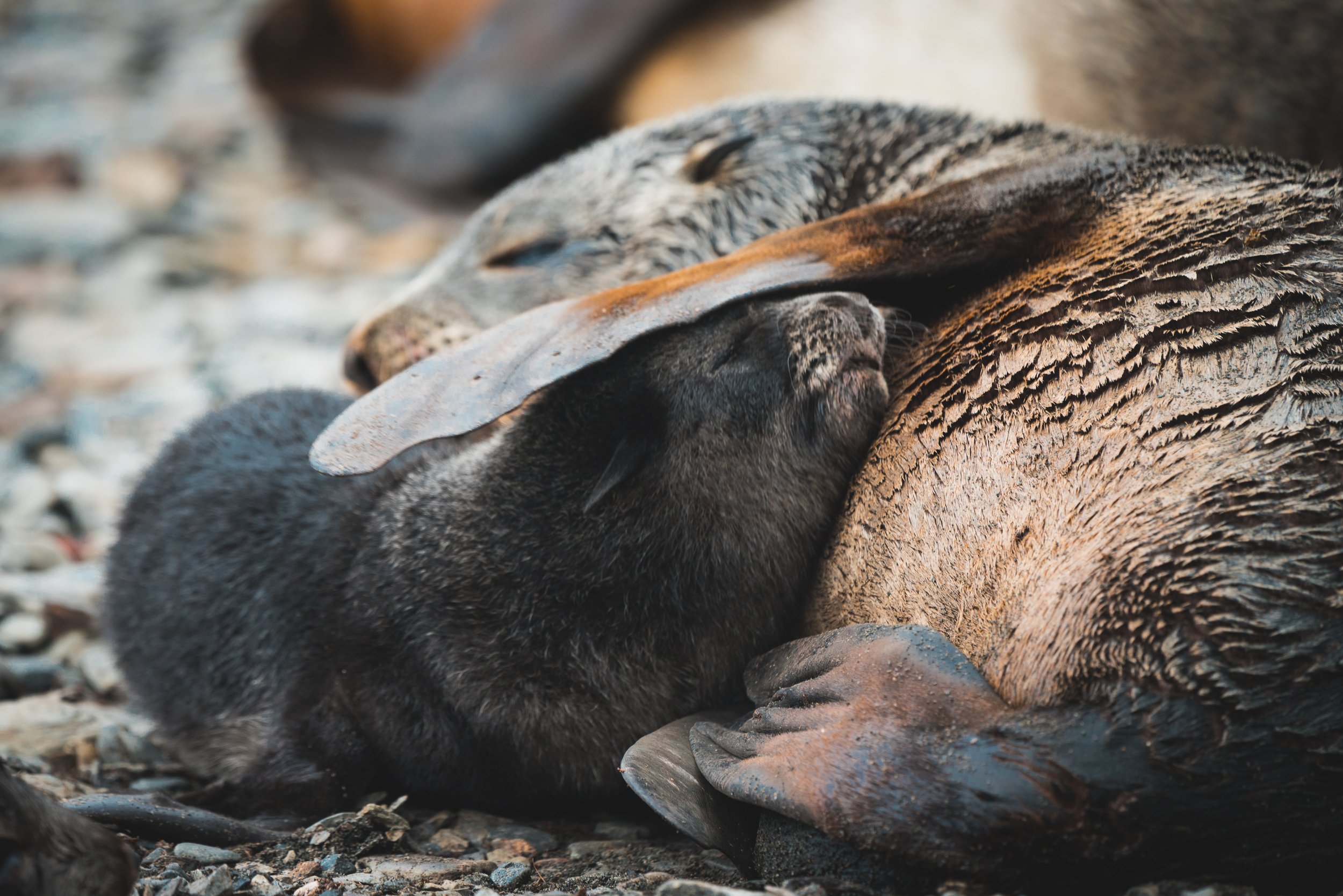
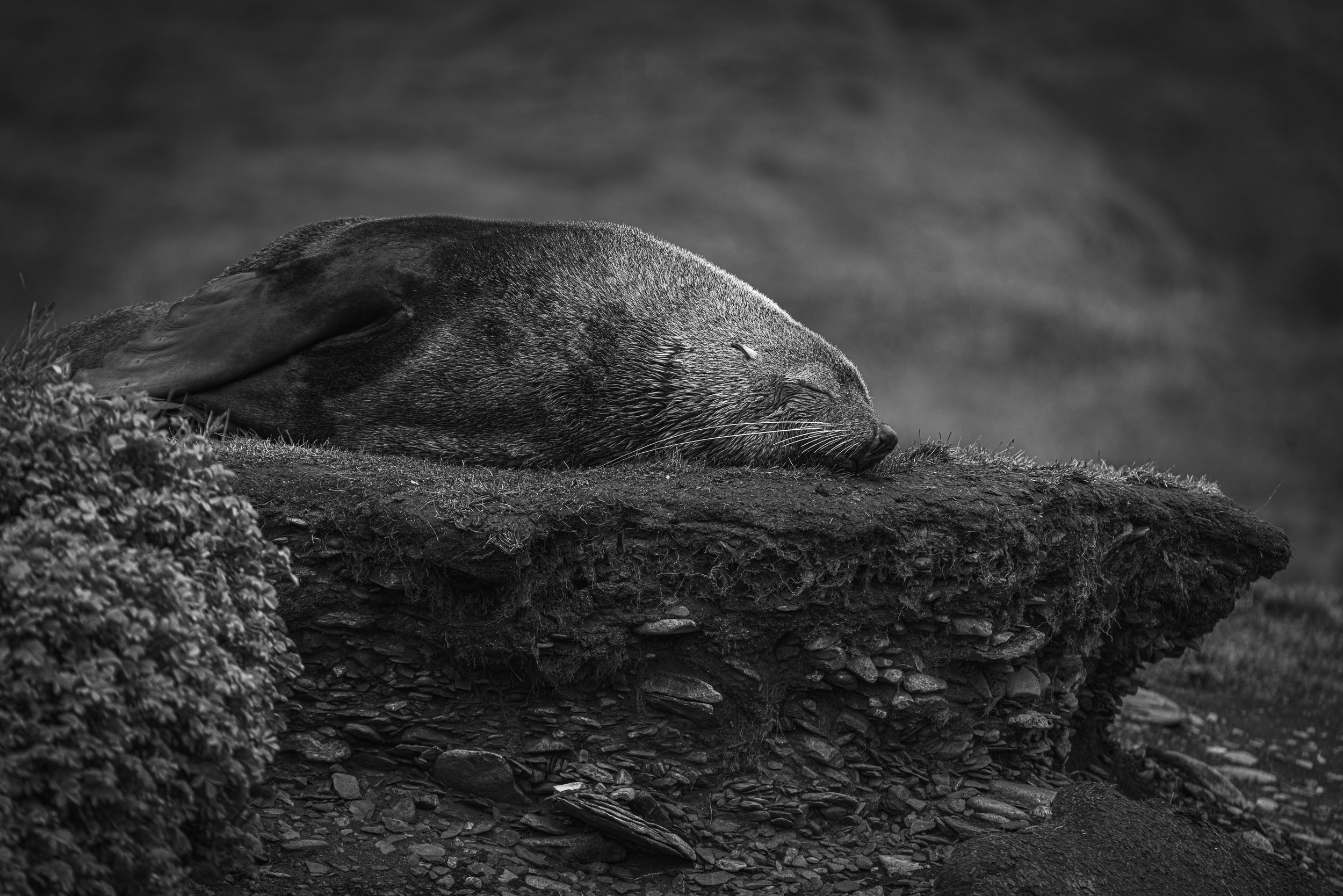

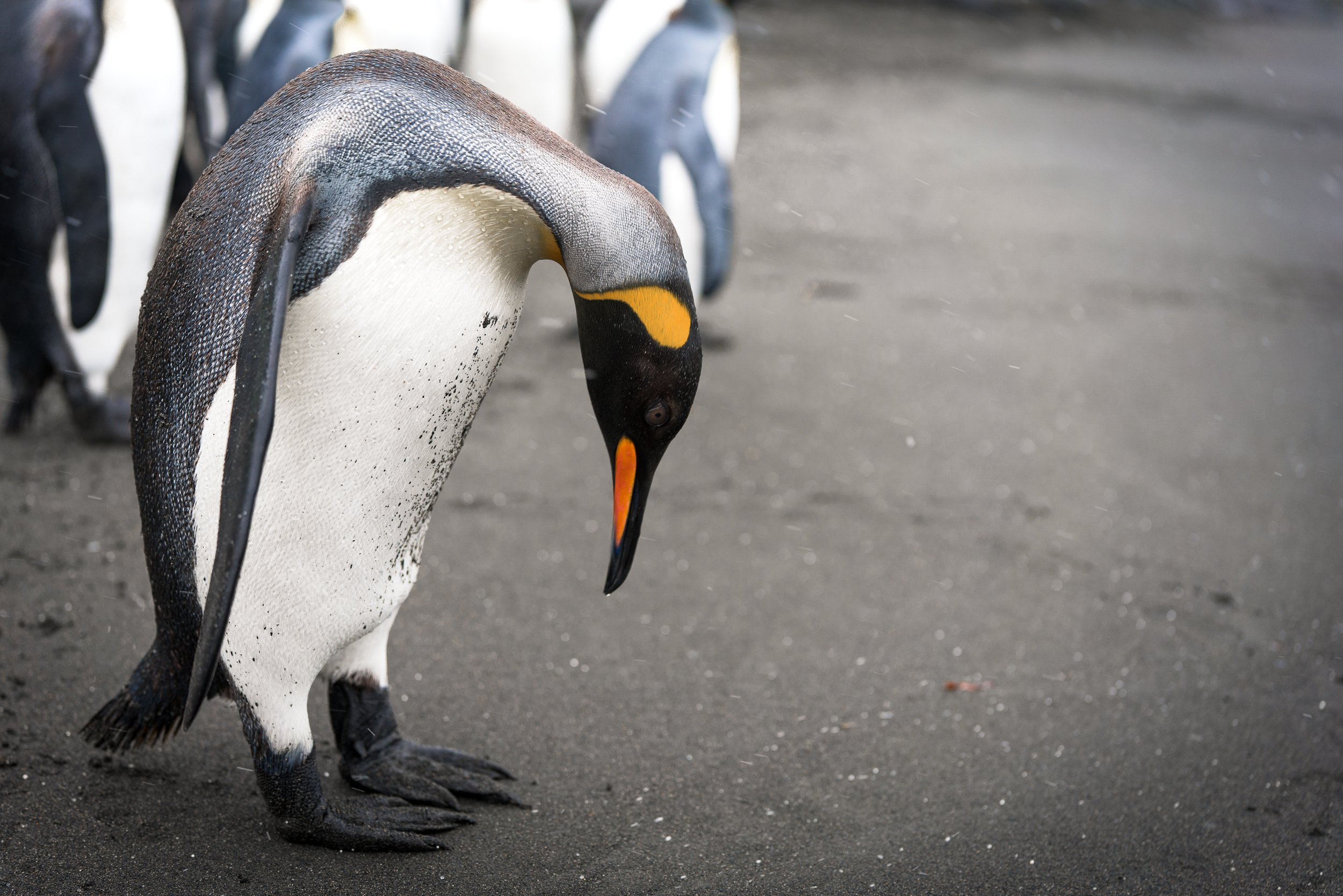



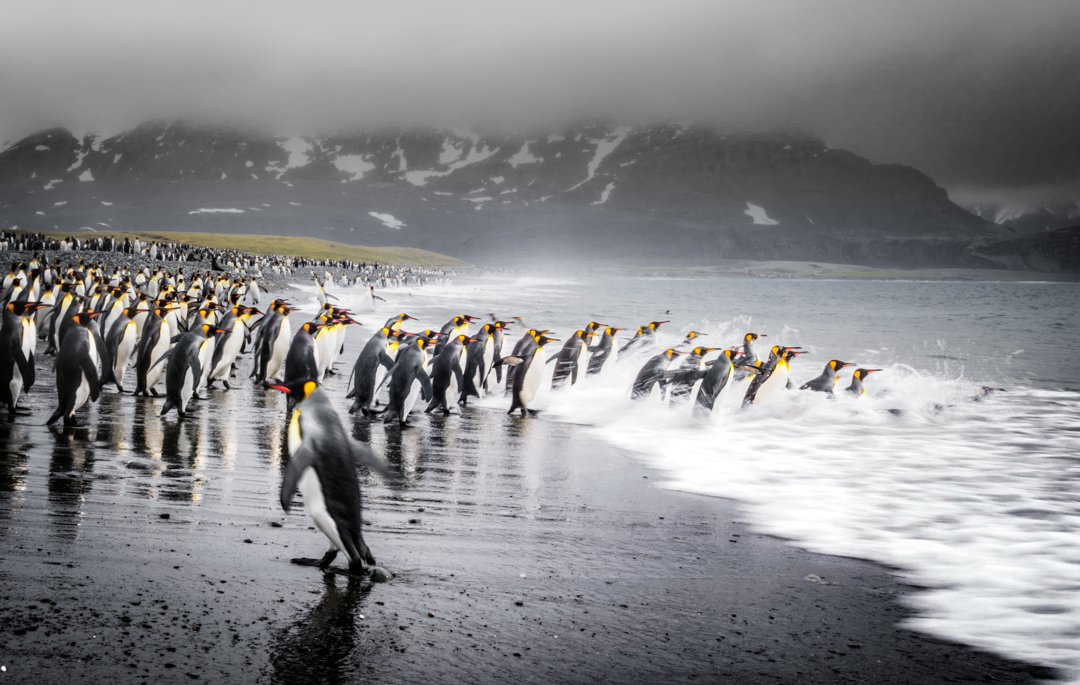
Still not sure?
Check out our South Georgia Blog to learn more!
Voyage Map.
No two Antarctica trips are alike. There is no way to predict beforehand which landing sites we will visit for our trip until literally a day or two before the scheduled landing. The weather in Antarctica is completely unpredictable and any ‘plan’ we thought we had, is normally changed half a dozen times in 48 hours. The Captain and expedition leader will monitor weather patterns and ship schedules to make sure we find the best conditions possible to make as many landings and activities as we can. This map is just a general idea of what a classic route may look like.
Available Add-on Activites
-

Kayaking
Kayaking is booked and paid for onboard the Ocean Victory, after you’ve attended the mandatory Kayak safety briefing.
$310 per person/per outing. -

Polar Plunge
Reserved for only the bravest of explorers who wish to jump into the ice-cold waters of Antarctica!
Free for all guests!
-
Will we get off the ship?
Yes!!! You’ll once we arrive in Antarctica it will be the ultimate goal of the Captain, Expedition Leader, and the Expedition Team to make sure we get off the ship as much as possible. You’ll participate in landings, zodiac cruises, and any additional activities you’ve signed up for. Check the “Detailed trip itinerary” below for more details on each outing.
-
Are there additional taxes and fees?
The price shown is the "all-in” price after all taxes, fees, port fees, and permits required; which are handled by the tour operator. The only main additional costs will be mandatory travel insurance, optional gratuity, canned beverages and alcohol, and additional activities. See the full list of inclusions/exclusions below.
-
Do I pay extra if I'm a solo traveler?
Not necessarily, no! Our group trips are usually made up of around 50% solo travelers! Prices are always per person, per bed. If you’re a solo traveler, we will match you with a same-gender roommate from our group to share your cabin with. There is also the option for solo cabin availability on certain trips. Please send us a message about solo cabins if that’s your preference.
Pricing
All prices are per person and include all taxes, fees, port fees, accommodation and meals.
Please refer to the full list of inclusions and exclusions are the bottom of the page.
50% OFF ON ALL CABINS
Cat F - Triple Porthole
Located on deck 3, these cabins offer three lower twin beds, or a queen bed with a single bed. These are large cabins that are great for a group of traveling friends, solo travelers, and families. - Ensuite
$15,795
$7,895
Cat D - Twin Porthole Cabin
.These twin portholes are located on Deck 3. They offer a large sitting area and a round porthole in each cabin. These cabins can be configured to offer two twin beds or one matrimonial bed. - Ensuite
$20,695
$10,345
Cat E - Twin French Balcony
These cabins offer a double-sized bed and the possibility of a full-sized sofa bed. Located on deck 7. The room features a large floor-to-ceiling, wall-to-wall window, where the top half of the window slides down completely. - Ensuite
$22,395
$11,195
Cat C - Twin Balcony Suite
The C Balcony Stateroom is offered on decks 4 and 6 and will come with a private balcony and a double/queen-sized bed. Price is based on single occupancy. - Ensuite
$24,495
$12,245
Ship Details.
The Ocean Victory was built in 2021 and holds many notable accolades.
Currently, it is the highest-rated ice-class ship built to date. It was also awarded “the most environmentally friendly ship to operate in the polar regions”.
This expedition vessel platform was designed for exploring Antarctica. The unique Xbow design offers speed and stability that is unmatched by other expedition cruise vessels.
The Ocean Victory carries 176 passengers and can max at 188.
-
BRIDGE
Due to its important role as a control center for all nautical and technical processes, the ship's bridge is a vital, sensitive place. Therefore, the bridge may not be accessible to the public at all times. Conditions permitting, we will be happy to welcome you into the bridge for a visit. Guests must be accompanied by the master or our expedition leader.
JACUZZIS AND SWIMMING POOL
The ship features two jacuzzis and an infinity swimming pool on the upper outside deck (deck 7), allowing spectacular views of the polar landscape outside in a relaxing environment.
Please note, there is no lifeguard on duty, the pool and jacuzzis will not be accessible if weather and wind conditions render them unsafe to use. The weather in polar regions is typically not suitable for infinity swimming pool use. It is to be expected that the use of these facilities will be on certain calm days and within certain hours, so if you plan on using them, please confer with the expedition staff onboard. The jacuzzis (hot tubs) can normally be used much more frequently and whilst the ship is moving.
STATEROOM SERVICE
Your stateroom is serviced daily. We provide a turn-down service. -
ZODIAC LANDINGS
One feature of our expedition cruises includes landings and excursions aboard Ocean Victory's fleet of 18 inflatable, motorized rubber "Zodiac" boats. The Zodiac brand has earned a well-deserved reputation as the sturdiest and safest small watercraft available. These boats have a low draft and great stability. Zodiacs are constructed for professional use and are outfitted with a top-quality outboard engine, yet their design minimally impacts the environment.
The Zodiacs are designed to provide unrestricted access to the world’s last great frontier. Their versatility enables us to make landfall on remote shores, cruise along awe-inspiring coastlines, and share breathtakingly close encounters with whales, seals, penguins, seabirds, and more.
Your safety and comfort are our #1 priority, and your expedition leader will carefully plan for as many Zodiac excursions as possible, dependent upon the local weather and prevailing conditions. In each case, the expedition leader makes the final decision if the landing is possible or not. Safety regulations apply on landings. All guests receive mandatory instruction on the safety guidelines. Life jackets are mandatory to wear.
Please note, that we highly recommend the use of waterproof bags in order to protect your personal camera or binoculars, as both hands must be free of everything during boarding. Participation is fairly easy and comfortable for able-bodied guests but can be more challenging for those with physical handicaps.
CRUISE CARD / PAYMENTS / CREDIT CARDS
At the time of embarkation, you will receive your personal cruise card, which you should always have with you. This card is used on board as payment instrument and identity card. All on-board purchases from the boutique, bar, internet, telephone, laundry, and the like are charged to your shipboard account.
To activate your personal onboard account, we accept Visa, MasterCard, and American Express credit cards. At the end of the voyage, your account will be settled by the payment methods mentioned above.
There is no currency exchange office onboard the vessel. Onboard payment will be completed by your cruise card.
If you choose to leave a gratuity for the crew, the amount that you authorize will be charged to the shipboard account. Be sure to contact your credit card provider regarding the use of your credit cards overseas. Any questions regarding the bill can be addressed to the Reception.
GRATUITIES
Following international standards in the service industry, it is customary to leave a gratuity for the ship’s crew at the end of the voyage. All gratuities will be divided among the crew. Typically, the recommended amount is approximately 13.50 USD per person per day. Gratuity is, of course, not required and any gratuity payments are voluntary.
If you choose to leave a gratuity for the crew, the amount that you authorize will be charged to the shipboard account.
DRESS CODE
The dress code on board is casual. It is more important to wear the right clothes in order to adapt to the different weather conditions. We recommend comfortable, breathable, waterproof, and windproof clothing. Also, you should have a pair of gloves, thermal underwear, and sturdy footwear in your luggage. For the captains and farewell cocktail, we recommend a smart casual dress style.
ENVIRONMENT
As a tour operator for cruises in the Polar Regions, which are some of the world’s most pristine environments, we extremely emphasize environmental awareness as well as sustainability. One of our top priorities is to protect the environment and minimize our CO2-emissions. All waste will remain onboard the vessel until we return to shore and it's possible to dispose of waste.
We ask that you show a deep respect for the unique nature and act according to the motto: leave nothing but footprints, take nothing but memories.
INTERNET / PHONE
Keep in mind, that we will be cruising in a very remote region of the world. Where accessible, internet access is available for an extra charge. Mobile phone reception may be possible in select regions along our route. For further details please contact your mobile phone operator. Prices can be found in the information folder in your stateroom. Please ensure that your ‘Data Roaming’ function is switched off.
LANGUAGE ONBOARD
The official language aboard our vessels is English; however, our expedition leaders and crew are knowledgeable in a variety of languages. If there is a large group, who desires communication in their own language, we will make special arrangements to accommodate their needs.
PASSPORT / VISA
Each guest is responsible for ensuring that he/she meets the applicable passport and visa requirements for the duration of the trip. The passport is the only valid proof of identity for all trips with the Ocean Victory. Your passport must be valid for a minimum of 6 months after arriving home from your destination. Although some countries may require shorter periods, we implement this 6-month prerequisite to avoid situations where a country’s validity requirements may be amended between the time of your booking and departure. The name in your passport must be identical to the name in all travel documentation. Costs incurred due to insufficient travel documents are the responsibility of the passenger.
Please note that passports will be collected for clearing formalities at the beginning of the voyage. The passports will be kept safely by the Purser during the whole voyage and will be handed out on the last day. We, therefore, recommend preparing copies of all documents before you start your travels.
RECEPTION
The daily office hours of the board reception are from 06:00 until 23:00.
ALBATROS OCEAN BOUTIQUE
The selection of items available for purchase varies by ship and may include a range of warm and practical clothing, as well as souvenirs, local arts, and postcards at reasonable prices. A small selection of soap, toothpaste, and other toiletries are also sold.
AVAILABLE SEATING SPACE
Shackleton Lecture Room: 185
Nordic Lounge: 50
Beagle Restaurant: 166
Beagle Specialty Restaurant: 40
Observation Lounge: 67
Panorama Specialty Restaurant: 46
HEALTH / MEDICAL EMERGENCY
Each of our vessels has a small medical facility equipped with the necessary equipment and medicine to handle small emergencies. The infirmary is always staffed by a professionally licensed, English-speaking physician. Should a serious incident occur, the nearest hospital will be contacted. All guests must have personal travel/health insurance.
Although we do not have an official requirement regarding personal fitness, you should be able to move on board and ashore without the help of others.
Due to safety reasons, a cruise is only possible for pregnant women until the 24th week of pregnancy. The state of pregnancy must be presented by a medical certificate.
SAFETY / SECURITY ON BOARD
Our ships comply with all safety regulations and are ice-class vessels suitable for sailing in polar environments. Upon arrival to the vessel, there will be a mandatory passenger briefing and safety drill before departure. We will provide security information, and practical details regarding life onboard and introduce key personnel. You will be informed where the safety equipment is located and how it is used. Each stateroom is equipped with lifejackets. Once onboard, please familiarize yourself with the ship's emergency rescue plan.
PHYSICAL DISABILITIES / WHEELCHAIR ACCESSIBILITY
The Ocean Victory has two cabins available to guests requiring wheelchair access. Guests needing any form of assistance, and those who are physically disabled must be accompanied by someone who will take full responsibility for any needed assistance during the cruise and in the event of an emergency.
Moreover, guests requiring a wheelchair must provide their own collapsible wheelchair. Please be aware that some ports of call, shore excursions, docks, gangways, and other requirements may preclude a wheelchair-bound guest from leaving the vessel; that decision will be made by the Expedition Leader or ship’s captain and is binding.
SEASICKNESS / STABILISATORS
The ship is equipped with stabilizers in order to reduce the ship’s roll. However, these expeditions are hosted in remote regions, and it is possible to periodically encounter changing environments and climate patterns, including rough seas and large swells. Seasickness medication work solely or in part to help cure nausea for most people. These medicines can cause sleepiness. If you are prone to motion sickness, consult with your doctor prior to departure to help ensure your comfort while travelling.
SMOKING
For safety reasons and to protect the health of our guests and employees, smoking is only allowed in designated areas on the outside decks. Smoking is not permitted inside the vessel, in the stateroom or near the Zodiacs. Please remember to respect our natural environments and dispose of cigarette butts in designated bins.
SPECIAL DIETARY REQUESTS
All meals on board the vessel is chef-prepared. If you have special dietary requirements (food allergies, intolerances, health conditions or religious preferences), please inform us as early as possible - ideally, no later than 2 weeks before departure. In order to ensure efficient service, please re-confirm your requirements with the crew upon boarding the ship.
ELECTRICAL OUTLETS
The ship has a 220v / 50 Hz cycle system. Please check your appliances before use. 110-volt appliances require an adapter prior to use aboard the ship.
The electrical outlets on board Ocean Victory are the so called ‘F-type sockets’, round 2-pin, 220-240 V, grounded, used in continental Europe and Russia. They take C, E, and F-type 2-pin plugs.
WATER
There are several water stations onboard Ocean Victory. Normally, water is not rationed, but we do advise our guests to pay attention to their water consumption.
LAUNDRY
If you wish to have some laundry done while aboard the ship, laundry service is available for an additional fee.
ONBOARD BRIEFINGS
The Expedition Leader will conduct regularly scheduled briefings to highlight key points in the itinerary, organize excursions and communicate important information.
CHILDREN
Due to safety precautions, children under 12 years of age will be taken into consideration on each landing. It is entirely at the Expedition Leader’s discretion to permit children on excursions and shore landings.
ITINERARY & PROGRAM CHANGES
As this is an expedition cruise to the world’s most remote region, we are at the mercy of Mother Nature. We have planned itineraries for each tour package, but to ensure to safety of our guests and crew, we may be forced to change the route.
RULES FOR LANDINGS & EXCURSIONS
When ashore, it is very important to show a deep respect for the unique nature and act according to the motto: leave nothing but footprints, take nothing but memories. We also ask that you remain together with your group, as we are truly in the wild and must remain extra vigilant of the wildlife and weather conditions around us. Walking around independently is strictly prohibited. It is essential to abide the strictly communicated safety rules.
